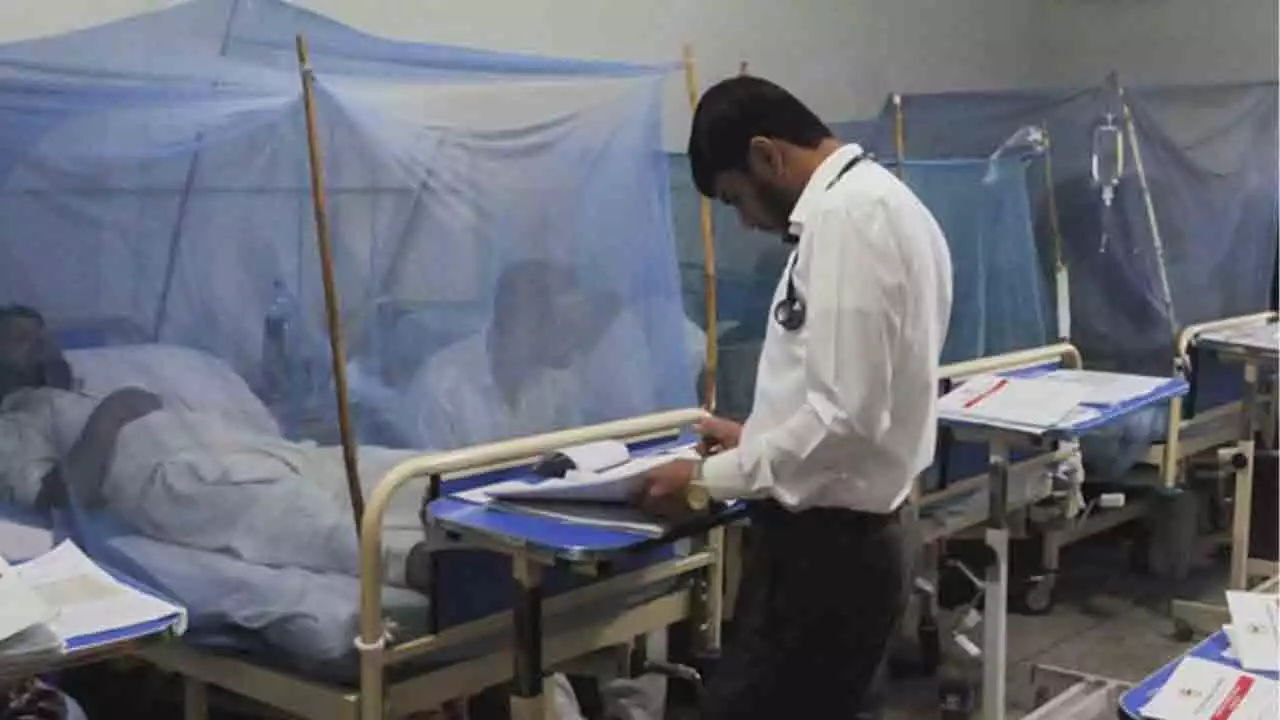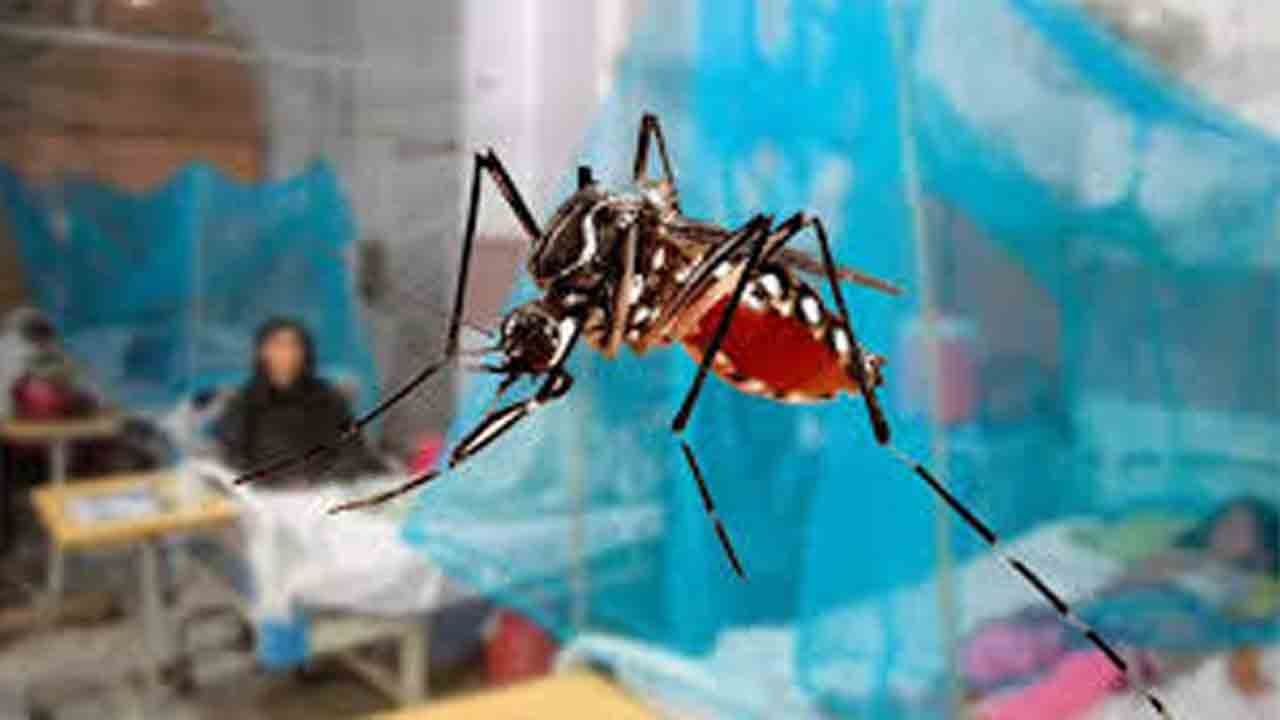The recent spike in dengue cases across Pakistan has prompted the Health Department to take swift action, with 954 new cases reported in just the past week. This brings the total number of cases reported this year to 5,897. The outbreak has affected various regions, with districts such as Chakwal, Wahari, and Gujranwala reporting some of the highest numbers. The Health Department is closely monitoring the situation and implementing preventive measures to curb the spread of this mosquito-borne illness.
Dengue fever, transmitted through the bite of an infected Aedes mosquito, is a persistent public health challenge in Pakistan. The virus can cause severe symptoms, including high fever, joint pain, nausea, and in extreme cases, hemorrhagic fever, which can be life-threatening. The uptick in cases has raised concerns among citizens, especially as the rainy season creates conditions that favor the breeding of mosquitoes.
Surge in Dengue Cases Across Districts
In addition to the 3.3 cases reported in Chakwal and Wahari, two cases were reported from Gujranwala. Other areas across Punjab have also seen sporadic cases, with one case each reported from Faisalabad, Bahawalpur, Mianwali, Sialkot, Sahiwal, Chiniot, and Pakpattan. The widespread geographical distribution of these cases indicates the need for a coordinated and sustained response to control dengue across the province and beyond.
This year, health officials have noted an earlier-than-usual increase in cases, signaling that prevention and control measures are more critical than ever. According to the Health Department spokesperson, authorities have implemented numerous precautionary measures to control the outbreak, focusing on both treatment and prevention.
Health Department’s Response to the Outbreak
The Health Department has assured the public that all necessary arrangements have been made for dengue prevention. Hospitals across the country are stocked with necessary medicines, including those needed to treat dengue symptoms. From government hospitals to local health centers, the availability of drugs and necessary medical supplies has been prioritized to ensure timely treatment of cases and prevent further escalation of the outbreak.
Efforts to prevent dengue transmission are being intensified. Health Department teams are actively conducting awareness campaigns, focusing on educating the public about dengue symptoms, prevention strategies, and the importance of keeping surroundings clean to prevent mosquito breeding. Given that dengue-carrying mosquitoes breed in stagnant water, citizens are encouraged to eliminate sources of standing water around their homes, such as plant pots, buckets, and open containers, which are common breeding grounds.
Additionally, fumigation drives are being conducted in high-risk areas to eliminate mosquito populations. The Health Department is working with local authorities to ensure these fumigation campaigns reach as many affected areas as possible. These fumigation efforts, combined with public awareness campaigns, aim to reduce the risk of dengue spread in both urban and rural areas.
Community Awareness and Participation
Public awareness and active participation from the community play a crucial role in controlling the spread of dengue. The Health Department is urging people to take personal precautions, such as wearing long-sleeved clothing, using mosquito repellents, and installing screens on windows to prevent mosquito bites, especially during peak mosquito activity hours in the early morning and evening.
The spokesperson also highlighted the need for community collaboration, as dengue prevention requires efforts at multiple levels. By actively participating in cleanliness drives and maintaining hygiene in and around their homes, citizens can contribute significantly to controlling the outbreak. Schools and workplaces are also encouraged to take necessary precautions to safeguard against mosquito breeding on their premises.
Educational institutions are being asked to create awareness among students about dengue prevention methods. This includes educating students on recognizing early symptoms of dengue and encouraging them to report any suspected cases. Early detection and treatment are vital in reducing complications and preventing the spread of the virus.
Future Steps for Dengue Control
While immediate measures are in place, the Health Department is also looking toward long-term strategies for controlling dengue. This includes developing improved surveillance systems to identify potential hotspots and respond rapidly to new cases. Surveillance data will help health authorities allocate resources more effectively, focusing on areas with the highest case counts and the greatest need for intervention.
In addition, the government is exploring partnerships with international health organizations to support dengue prevention and control efforts. These partnerships could help bring in resources, technical expertise, and funding to strengthen Pakistan’s response to dengue and other vector-borne diseases. Collaborative efforts at the national and international levels will be essential to combat this recurring public health challenge.
As the rainy season continues, the risk of dengue transmission remains high. The Health Department is prepared to increase its efforts if the outbreak worsens, including enhancing hospital capacities and ensuring an uninterrupted supply of medicines. While these measures provide reassurance, health officials are urging citizens to remain vigilant and proactive in preventing dengue.
The recent surge in dengue cases across Pakistan is a reminder of the persistent threat posed by this mosquito-borne disease. With 5,897 cases reported this year and an ongoing risk of further spread, the Health Department’s actions are timely and essential. Through proactive measures, such as fumigation drives, public awareness campaigns, and ensuring medical supplies, the department is working to curb the outbreak.
Community cooperation remains a key factor in dengue prevention. By following the Health Department’s advice and taking personal precautions, citizens can help reduce the spread of dengue and protect themselves and their loved ones. While the government continues to strengthen its response, long-term strategies and public awareness will be essential in keeping this public health challenge under control.
With the collective efforts of health authorities and communities, Pakistan can hope to mitigate the impact of dengue and safeguard public health.



